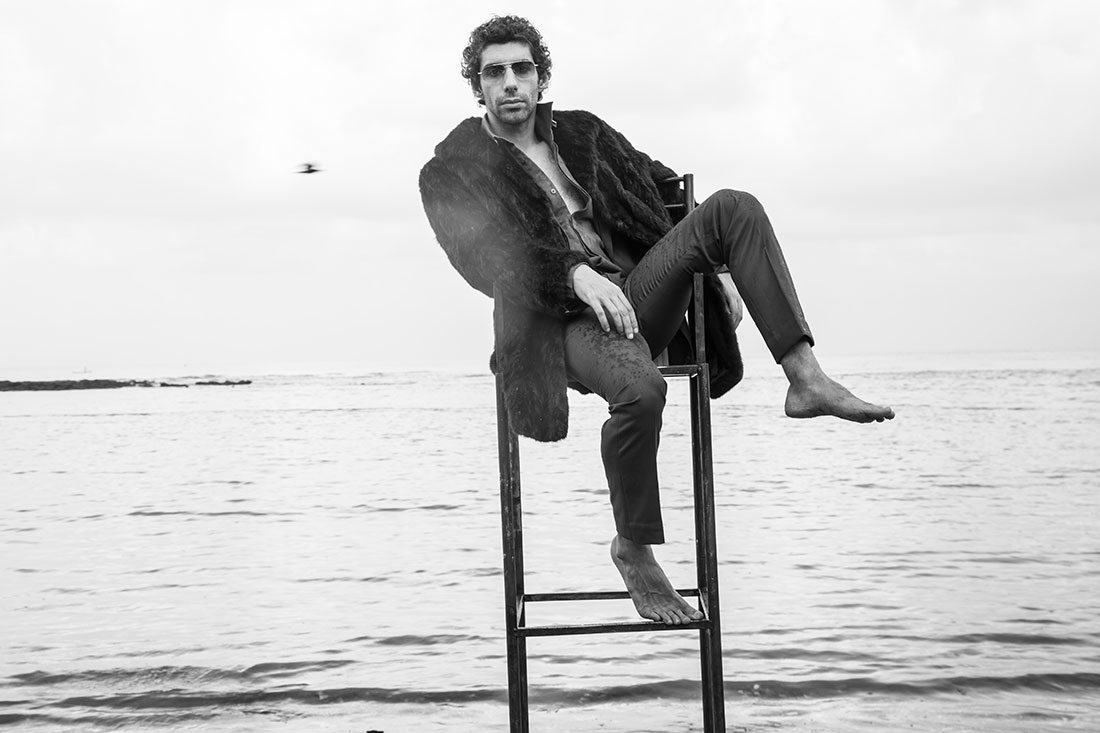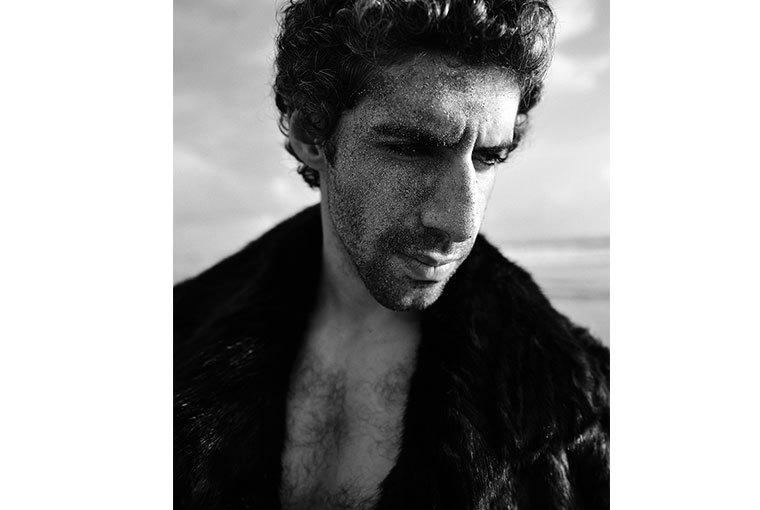
Art Direction Vrinda Narang

Art Direction Vrinda Narang
A coversation with Jim can go in unexpected directions. One moment he is earnestly talking about his childhood at length, and the next, in response to a question about his life before theatre, he gives me monosyllabic replies. He’s entertaining but also a little bewildering. Like when triggered with constant reminders about pending answers and pictures, he replies with a blanket ‘yes’. He’s broody and charming and baffling all at the same time. It’s difficult to pen him down. As a kid he didn’t have many aspirations. ‘I was bullied in school because I was the foreign kid on the street, or maybe the youngest in the group or maybe my personality was lame. I ran up to the forest nearby and hid in caves and stole recycled paper to light small illegal fires. Once, a new girl with blonde hair and light grey-blue eyes and freckles joined my school in Turramurra, Sydney. First grade. I thought I loved her. I skinned my knees falling on cement and went to the bathroom. I dressed up like a wombat. Later I dreamt I was cool and in the bathroom with cigarette shaped sweets, and I offered the girl one and she took it.’
Jim was born in Mumbai to a Parsi family. His mother was a physiotherapist and his father was a master mariner, and later the Regional Director of P&O Ports South and Middle East Asia. He moved to Australia with his family when he was three years old and moved back to Mumbai when he was eight. He did most of his schooling at the American School of Bombay.

Photography Ashish Shah
He studied psychology in Atlanta long before he became this busy theatre actor jumping from one project to the other. He has no time, he tells me. Moving around with a bag full of scripts, Jim has built an impressive repertoire of work. And he has always scrupulously chosen variety in order to keep himself from being boxed in. Jim has distinguished himself not just by his talent, but also by his penchant for diversity.
After graduating, he worked at the Alliance Theatre in Atlanta, eventually moving back to Mumbai in 2012. He has been active in Mumbai’s theatre scene since then—his career graph started with Purva Naresh’s OK Tata, Bye Bye, and went on to include Sunil Shanbag’s Stories in a Song, Alyque Padamsee’s version of Death of a Salesman, apart from his own directorial adaptations such as Mike Bartlett’s Cock. Whether it is Rajit Kapur’s production of Tennessee Williams’s The Glass Menagerie or Kalki Koechlin’s The Living Room or Rajat Kapoor’s What’s Done is Done, he stands out for the intensity he brings to his performance. All of the above mentioned work took his time, devotion, irreverence, and sometimes, bits of his pride. ‘They gave me rhythm, a sense of com- munity, spontaneous combustion, and increased ambition.’
But how easily does it come him, being no one and yet someone? ‘The characters I play are born through some intercourse between what is written and what I can do, so it’s not me. Sometimes jumping between shoots is tricky simply because I’m still figuring out how this character behaves, and therefore I am insecure about whether I will do it right. But if the shoot has gone on for a while, then I get to know my character better, and then I can switch much easily.’ And what about being typecast as the white guy in the industry... ‘Oh that was just one play, oh wait! Two plays. Well, I am just here to act.’
Even as Jim very convincingly played a raging, near-unhinged terrorist in Neerja, the actor managed to win quite a fan following comprising young girls and women. He was also on the Forbes List of the most promising 30 talents under 30 in 2016. But did he expect this adulation? ‘Nope, not at all,’ he says. Jim was effortless in the film, he speaks Arabic so flawlessly that it’s hard to believe it’s a Parsi boy at play. ‘The accent did not come easy; we practised for a month and a half with a dialect coach. My success in that film is all down to Vinod Rawat for running workshops with us...Ram’s meticulous planning that we were all subjected to, and also his ability to trust his prep work on the shoot and consequently let us be.’ And what is his strategy of dealing with failure, considering his latest release, Raabta, turned out to be a disappointment. ‘I suffer and hide,’ he confesses.
Next year promises to be another rollercoaster for Jim. There is Sunjay Dutt Biopic in the pipeline and Padmavati where his character’s name is a secret that he won't tell. ‘I really enjoyed playing my characters for these films. I took them up because of the filmmakers.’ He will also be seen in a web series called Smoke that has him hooked because of the story.
Text Hansika Lohani Mehtani